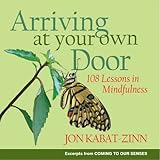 Who are you loving today?
Who are you loving today?
Narcissism describes the trait of excessive self-love, based on self-image or ego.
The term narcissism means love of oneself, and refers to the set of character traits concerned with self-admiration, self-centeredness and self-regard. The name was chosen by Sigmund Freud, from the Greek myth of Narcissus, who was doomed to fall in love with his own reflection in a pool of water. Even George Carlin had something to say on narcissism.
Narcissism isn’t just a combination of monumental self-esteem and rudeness. Narcissists desperately need other people to validate their own worth. A narcisist’s self-worth is based upon being admired by others. Many flaming narcissists are despicable jerks, dislike by many, but also admired for their business savvy, charisma, wealth, looks, etc. It’s the admiration that counts not being liked or disliked.
The term narcissist usually conjures up an image of a self-centered, selfish person. Narcissists avoid personal accountability, it’s always the other person’s fault.
From the perspective of Being, True Identity, or the Essential Self – we’re all narcissists. Being disconnected from what is real within us, we live our lives based upon images of self and not the actual ontological experience of self.
Fundamental narcissism, the specific and most central manifestation of the disconnection from the essential core of the self, the Presence of being, underlies all other forms of narcissism. Pathological narcissism is a distortion or an exaggeration of fundamental narcissism. Fundamental narcissism is an intrinsic property of the ego-self, which is the self as experienced in the dimension of conventional experience. – A.H. Almaas – The Point of Existence
Self-help books and personal development gurus speak to the value of self-love. Let’s not confuse this with narcissistic tendencies. Perhaps it would be better to encourage self-kindness and self-acceptance – which is really all all about disengaging the superego so we can actually explore our experience in an open manner without beating ourselves up all the time.
If we accept the fact that psychological development includes a certain amount of baggage like narcissism, racism and enough defenses to populate the Pentagon, it actually opens the door to fruitful exploration and the possibility of encountering what’s real.
Of course, we can always Love New York
[ad#post468]

 They live among us and seem to be breeding faster than a warren of rabbits on
They live among us and seem to be breeding faster than a warren of rabbits on 






 I just returned from a 10–day retreat with
I just returned from a 10–day retreat with 


 I have a friend who
I have a friend who